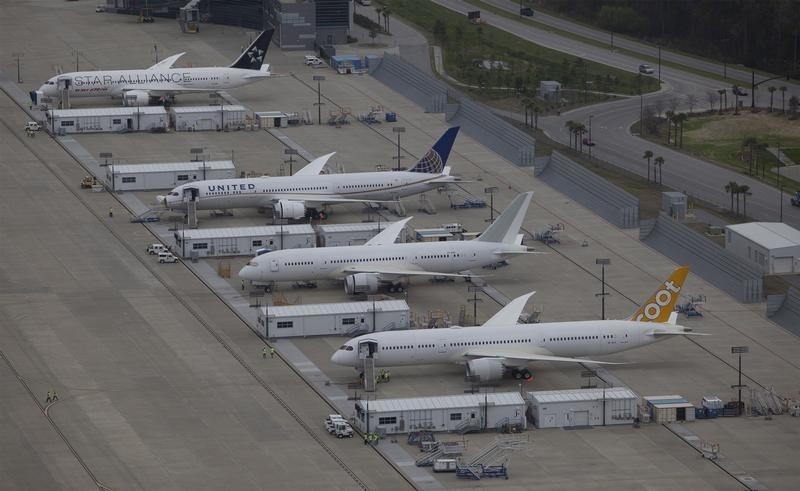By Alwyn Scott
NEW YORK (Reuters) - Citing steady demand from airlines, Boeing Co (N:BA) said on Tuesday it is capable of raising 737 jetliner output by 43 percent to 60 a month, as it gave a rosy outlook despite concerns about orders, overall production and defense spending.
Boeing Chief Executive Jim McNerney said market fundamentals that support higher jetliner production are unchanged, despite recent deferrals of aircraft deliveries by American Airlines (O:AAL) and United Continental Holdings (N:UAL), which he termed normal fleet optimization decisions.
Aircraft prices have "not deteriorated," even for 737 and 777 models that are being replaced by new versions, he told Boeing's annual investor conference in Chicago. Plane makers, including rival Airbus Group NV (PA:AIR), typically offer heavy discounts to sell end-of-production models to avoid cutting output.
Boeing faces curbs on defense spending, slowing commercial aircraft orders after record years, and a possible loss of export financing if Congress fails to reauthorize the U.S. Export-Import Bank.
But McNerney and other top executives of the world's largest plane maker said they would be able to keep profits rising because of the work they are doing to lift productivity, lower costs and make smaller, less expensive innovations in products.
McNerney reaffirmed Boeing's goal of generating more than $9 billion in operating cash flow this year, and said that figure will increase in 2016 and beyond.
He also said Boeing's defense business would be at the right scale even if it did not win ongoing competitions for major new programs such as the Long Range Strike Bomber.
"It's hard to believe we wouldn't get one of them," he said. But "we would still be an at scale" as a defense business, and would have the commercial airplane business. "We don't have to panic," he said.
MARGIN QUESTIONS
Boeing's profit margins are expected to fall in 2015, hit by plane development costs and output of relatively low margin 747 and 787 airplanes. Margins will resume their climb in later years, Chief Financial Officer Greg Smith said.
Countering concerns about a bubble in jetliner demand, Boeing said it sees scope to raise output sharply.
"We can go to 60 a month," Commercial Airplane Chief Executive Ray Conner said, referring to 737 production, currently at 42 a month and set to reach 52 a month in 2018.
Conner did not say Boeing has plans to use that capacity, but some analysts said such rates now appear very likely.
Productivity improvements in Boeing's factories have protected it should demand falter, executives stressed. The 737 factory has slashed production time by more than half. If plane output had to be notched down in a global crisis, profit margins would not fall as much as in the past, Conner said.
Boeing stock was down 0.2 percent at $145.61 in afternoon trading, suggesting investors remain concerned about the company's challenges.
Ken Herbert, analyst at Canaccord Genuity, said investors are focused on Boeing's volatile cash flow.

"You've got to look beyond that and have confidence in the three- to four-year vision," Herbert said.